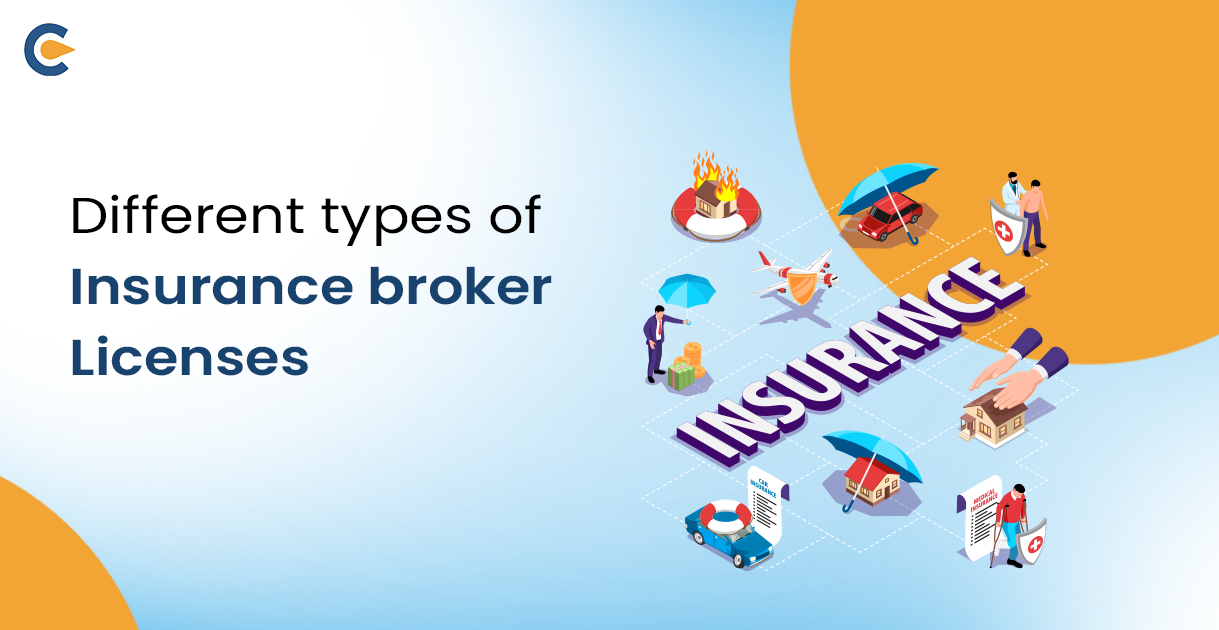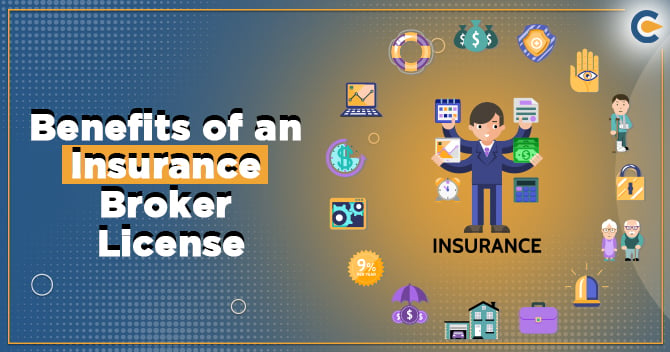An intermediary between insurance firms and those looking to buy insurance is an insurance broker. They are professionals who assist clients in selecting the right insurance plans based on their demands and specifications. The finer points of the plans, which are beyond the comprehension of the average person, are another area in which insurance brokers advise and counsel clients. An insurance broker is a person who obtains a license from the Insurance Regulatory and Development Authority of India (IRDAI) to advise customers on insurance-related problems.
What work does an Insurance Broker do?
An expert in insurance and risk management is an insurance broker. Brokers operate in their client’s best interests and offer advice on their behalf. In order to determine what needs to be insured and other risk management strategies, a broker will help you identify your personal and/or company’s risks.
Types of Insurance Broker License
There are three types of insurance broker licenses. They are:
Direct Broker:
A director broker license is one of the first types of insurance broker licenses. Direct brokers are also a type of insurance brokers that hold an IRDAI license and assist their clients in obtaining insurance coverage. They also offer risk management services in exchange for compensation or a fee. With their extensive and up-to-date knowledge of the whole insurance industry and its products, direct brokers provide suitable advising services. These brokers assist their clients in negotiating reinsurance plans and claims as well. The direct brokers are further divided into three types of insurance broker licenses:
- Direct Broker (Life)
- Direct Broker (General)
- Direct Broker (Life & General)
Reinsurance Brokers:
One of the other types of insurance broker licenses is the reinsurance broker license. Insurance for insurance firms is known as reinsurance. Reinsurance contracts are negotiated by a reinsurance broker between reinsurers and direct insurers. He is contractually committed to both parties since he/she works on their behalf. In addition to locating the finest coverage for each customer they represent, these brokers also negotiate contracts. Registration requires Rs. four crore in minimum capital, with the maintenance of a net worth equal to 50% of that amount.
Composite Broker:
One of the other types of insurance broker licenses that is registered with the authority is a composite broker. This type of license allows the broker to solicit and arrange insurance and/or reinsurance for its clients with insurers and/or reinsurers located in India and/or abroad. Additionally, the broker may provide services such as risk management, claims consultancy, or other similar services that are allowed under the IRDAI (Insurance Brokers) Regulations of 2018 in exchange for compensation or a fee.
Difference between Insurance Agent and Broker
The difference between insurance agent and broker are mentioned below:
| Insurance Agents | Insurance Brokers |
| Only offers products from that one company and acts as its representative. | Brokers offer insurance items to various businesses. They are able to collaborate with an unlimited number of firms. |
| The agents receive on-the-job training on the items while they are working directly with a corporation. | Since brokers sell a variety of products, no business provides them with training. Before pitching insurance goods, insurance brokers enroll in outside courses. |
| Following training, agents were granted a license by IRDAI in accordance with the rules. | Brokers need to reach a specific business threshold in order to obtain an IRDAI license. |
| When agents commit misconduct, the corporation will be held accountable, and the insurance company will face penalties from IRDAI rather than the agent. | Since they provide a variety of goods, insurance brokers are not supported by any corporation and are unable to provide consumers with a direct price disclosure. Brokers may face legal action for providing false information. |
| Agents are directly employed by the firm. Therefore, they are always up to speed on the features. They merely use their knowledge of rivals’ products as a point of comparison. | Since they are responsible for the insurance product, insurance brokers must be knowledgeable about all of the offerings. |
| Agent commissions are often greater than broker commissions. They also receive additional money based on their success in addition to a steady salary. | Brokers are paid a commission on the deals they make. Depending on the kind of policy sold, the revenue will change. |
| Due to the fact that they only use one single product, the business is restricted. | Due to brokers’ sales of insurance products, there is a bigger volume of business. |
Insurance Broker License with Corpbiz
The best step in becoming a professional insurance broker is obtaining a license as an insurance broker. It gives you the legal authority to serve as a middleman between insurance providers and clients and gives your clients confidence in you. There are different types of insurance broker licenses. Corpbiz provides expert guidance for types of insurance broker license registration.
Frequently Asked Questions
How many different types of insurance broker licenses are there?
There are three types of insurance broker licenses in India.
What is the minimum capital required to get a direct insurance broker license?
In India, a direct insurance broker license requires a minimum of Rs 75 lakhs in capital.
What is the Minimum Capital Requirement for Reinsurance Broker Licenses?
A minimum capital requirement of Rs 4 crores is necessary for an Indian Reinsurance Broker License.
What distinguishes a license for an insurance agent from one for an insurance broker?
Any firm looking to provide insurance brokerage services in India must have an insurance broker license.
Can a business seek to become a licensed insurance broker?
Yes, a company incorporated under the Companies Act of 2013 may apply for a license as an insurance broker.
When is the best time to send in my application to renew my license as an insurance broker?
An insurance broker license renewal application must be filed at least one month before the expiry.
What are the different types of insurance broker licenses?
The different types of insurance broker licenses are:
(i) Direct Broker (Life),
(ii) Direct Broker (General),
(iii) Direct Broker (Life & General),
(iv) Reinsurance Broker and
(v) Composite BrokerWho is an insurance and reinsurance broker's Broker Qualified Person?
A Broker Qualified Person is a person who has completed the required training and passed the test and who works as an employee or director of an insurance and reinsurance broker that solicits and procures insurance business.
What distinguishes an insurance broker from a TPA?
TPAs are regarded as key participants in the insurance and healthcare sectors; health insurers and self-insuring businesses use them to administer their services effectively and efficiently. A specialist in risk management and insurance is an insurance broker.
Who is a Direct Broker?
An insurance broker is registered with the authority and in exchange for compensation and/or a fee, solicits and arranges insurance business on behalf of its clients with Indian insurers is referred to as a “direct broker.” They may also offer claim consulting, risk management services, or other related services that are allowed by the IRDAI (Insurance Brokers) Regulations, 2018.
What is an IRDA license?
The IRDA License is issued by IRDAI to begin an insurance business. Additionally, it gives the company's IRDA agent license. The companies can sell the insurance products after obtaining the IRDA license.
Read Our Article: How To Become An Insurance Broker In India?











